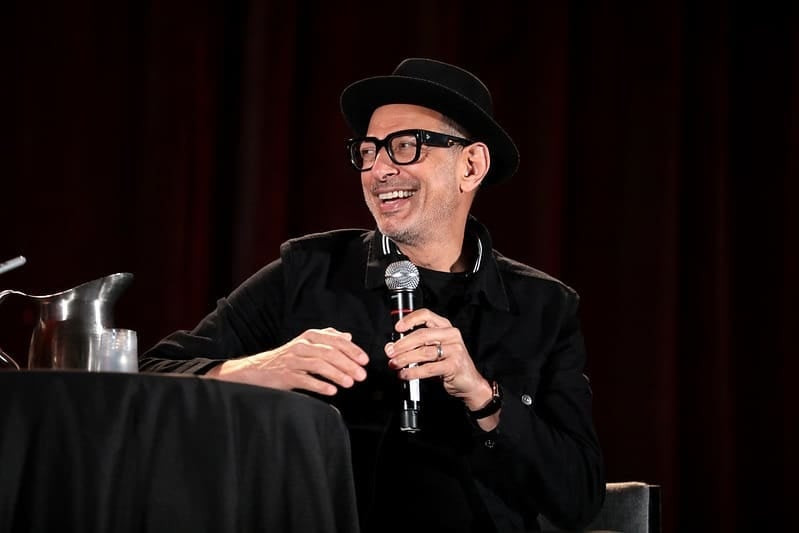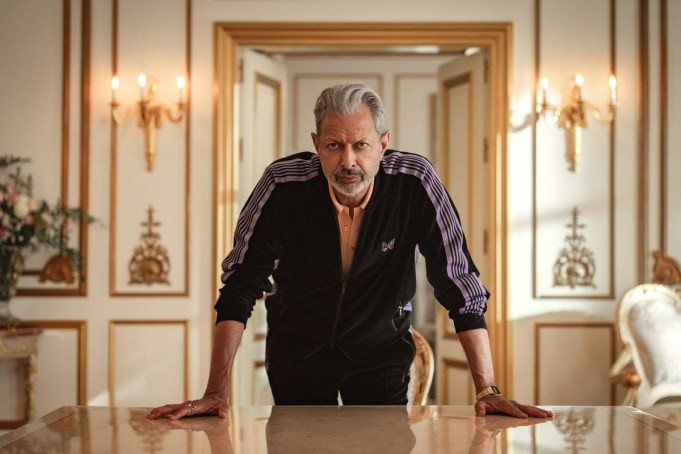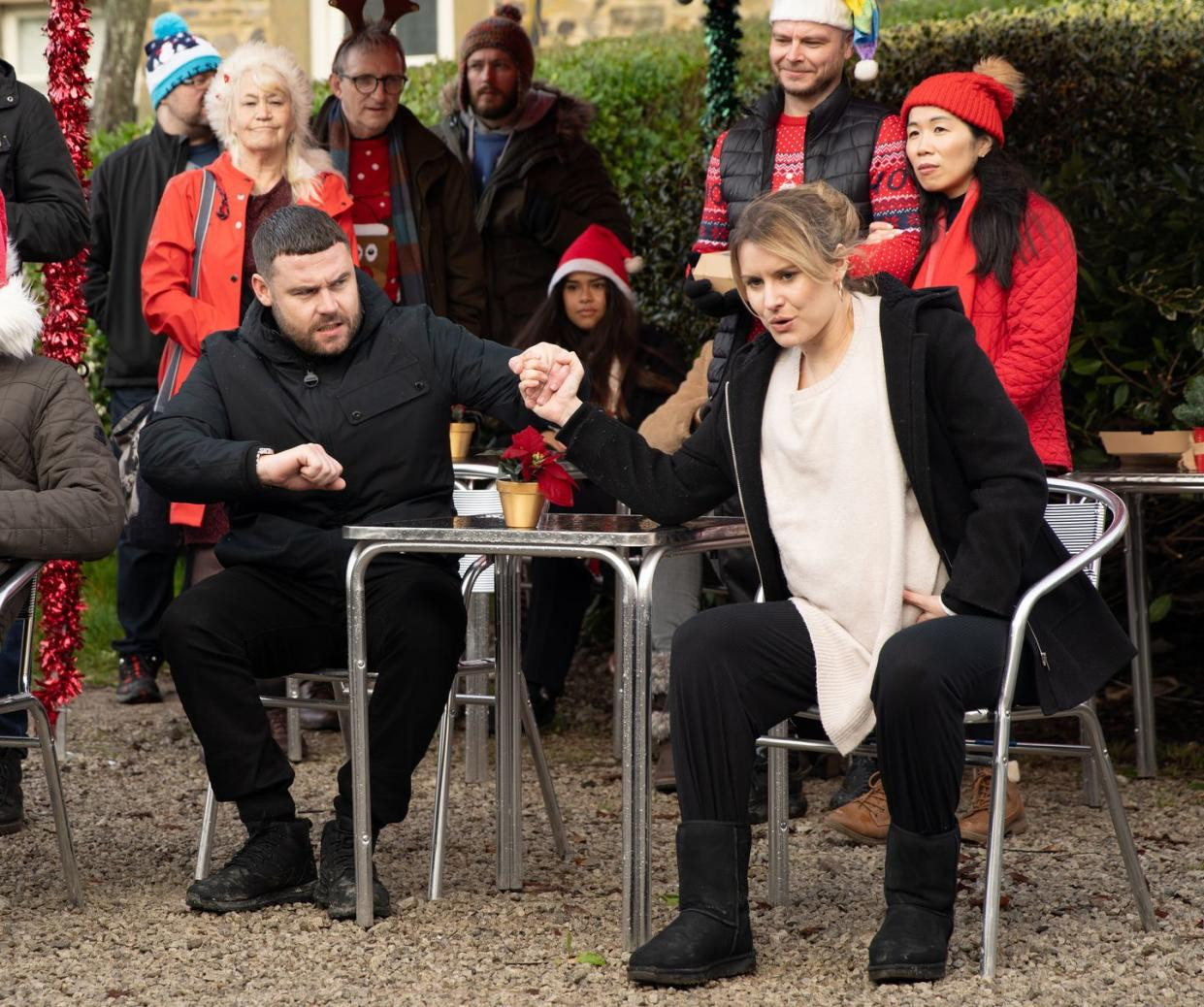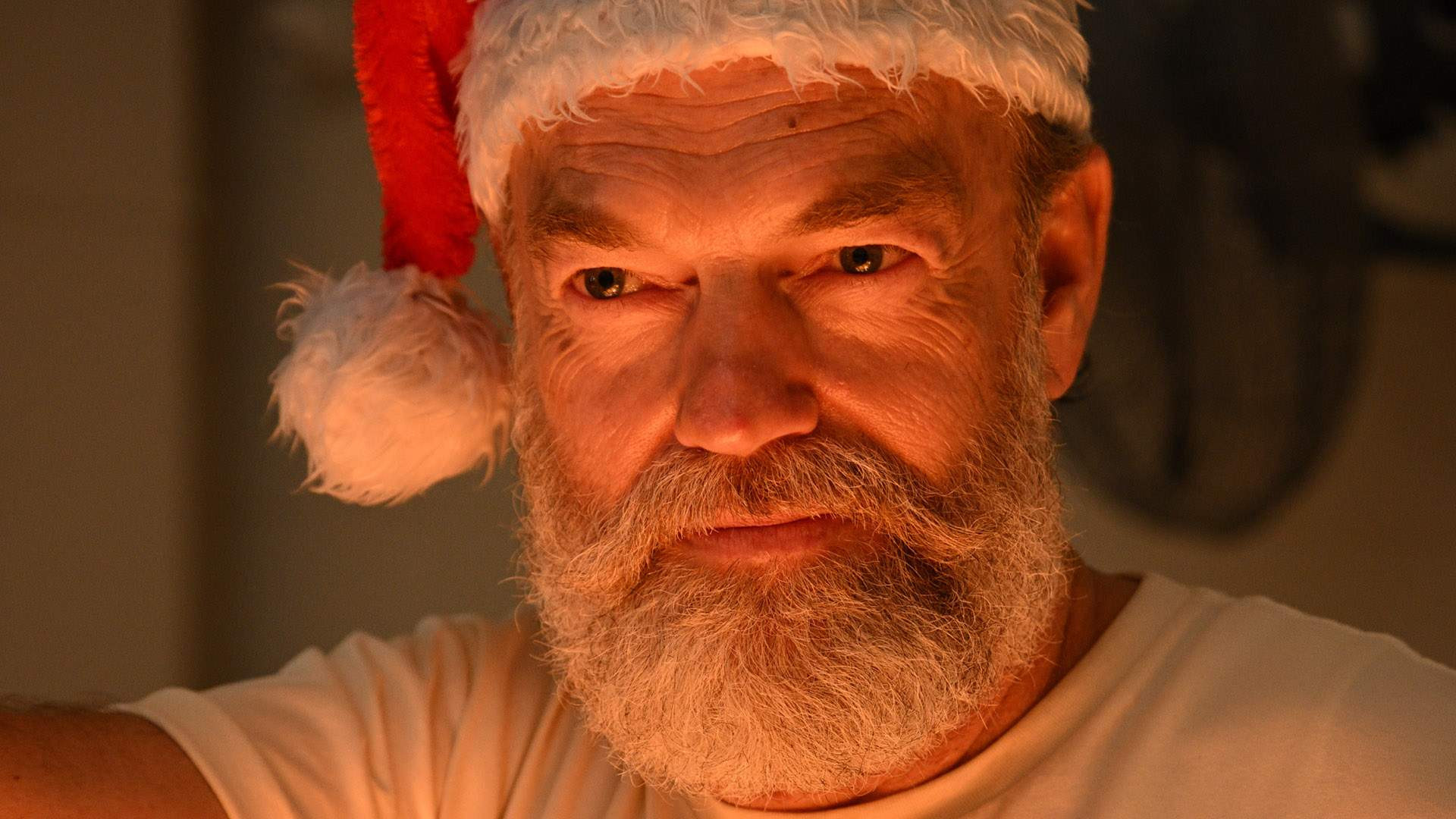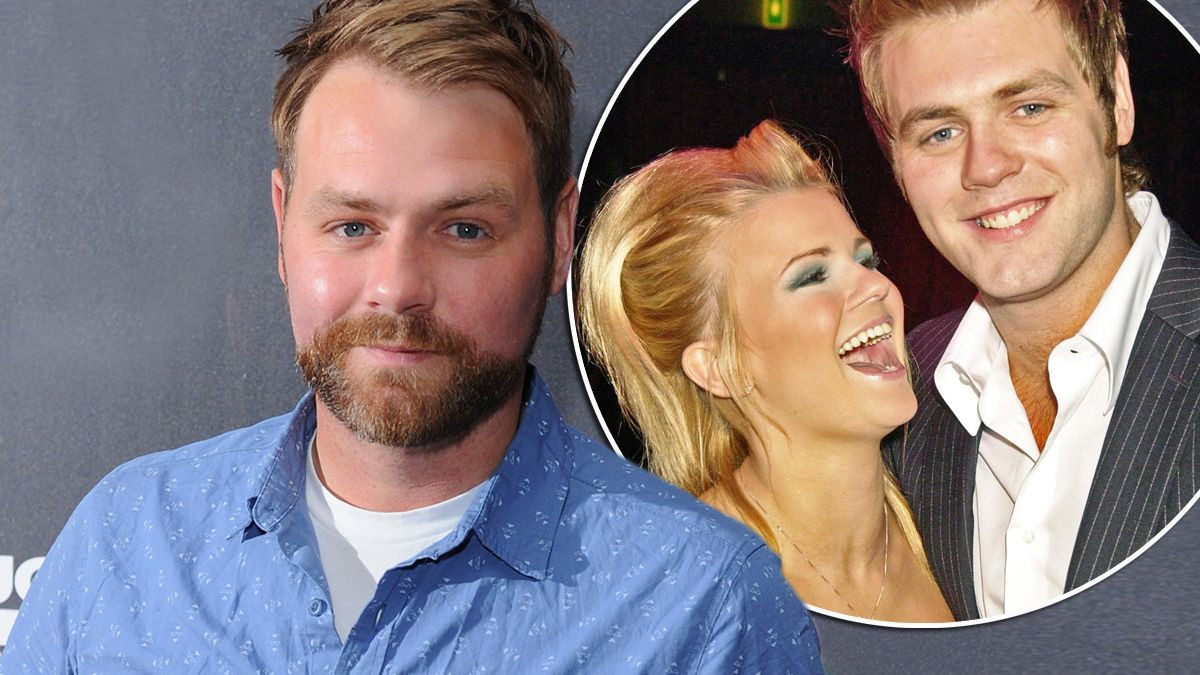Hilarious, profound and moving: this fantasy series is an utter triumph. Its tale of Zeus and co living in the modern day is intelligent, twisty and action-packed.
Kaos, the new venture from Charlie Covell, the creator of Channel 4 drama series The End of the F**king World, is anything but chaotic. Multi-stranded, immaculately paced and plotted, it’s a reimagining of Greek mythology that is subtle and intricate, witty, rigorous, hugely intelligent, funny and brutal. It flies.
Covell’s script is a masterpiece – so confident, so apparently effortless, so light on its feet – as it builds an alternative modern world in which pantheism (and Zeus) still rules, and gods mix with mortals, rarely to good ends. The eight episodes are stuffed with action, jokes (however much events darken as we go on) and grace notes. A huge cast of characters is deployed without a single one feeling underdeveloped or unnecessary, with Covell using them to interrogate what it means to be human, to have power, to be desperate, to have free will or not. They are all folded seamlessly into its furiously fun embrace.
I can give you no better – or certainly no shorter – indication of the overall tone of the thing than to say that Jeff Goldblum plays Zeus. White-suited and debonair, he swaggers happily round his sprawling palace and gardens on Mount Olympus until the day a new monument to him in Krete is publicly unveiled and found to have been desecrated by a gang of Trojans. Then he finds a new wrinkle on his forehead that he decides must be the fulfilment of the first part of a prophecy that will see his reign end and chaos rule instead. All of his neuroses and insecurities begin to flare (to such a degree that within a few episodes it feels like quite a departure in its vulnerability for Goldblum, best known for roles based on impregnable cool) as he plots vengeance on humanity. His wife, Queen (and sister, as an asterisked onscreen caption notes) Hera – the suitably magisterial Janet McTeer – tries to encourage him to keep his dignity and the doling out of punishments and the investigation.
The initially unseen narrator of events turns out to be Prometheus (Stephen Dillane) – former friend, current prisoner (chained to a rock, liver eternally pecked at by an eagle, it’s all coming back to you now) and immortal enemy of Zeus. He is doing his best to bring about the fulfilment of the prophecy ASAP, helped by various unwitting humans down on Earth and residents of the underworld. This is overseen by David Thewlis as Hades, which would have been an equally good way of cueing you into the tone of the thing, now that I think about it.
Eurydice, known as Riddy (Aurora Perrineau) is about to break up with her devoted rock star boyfriend, Orpheus (Killian Scott), when she is killed in a car accident and finds herself on a literal ferry across the Styx. With the help (or hindrance – the god of pleasure being something of a minor chaos merchant himself) of Dionysus (Nabhaan Rizwan), Orpheus sets out to bring her back from the underworld, via some heartbreaking scenes involving the couple seeking their dead son. Such moments are scattered throughout the series, whenever you are in danger of enjoying it as a mere romp, reminding us that the ancient myths deal in hard, eternal truths as well as allowing us to laugh at gods and mortals shagging about and getting changed into bees for their trouble. While Orpheus fights to reach his beloved, however, she is busy forging a connection with Caneus (Misia Butler) and discovering even worse things about their new home than you might imagine for the underworld.
There is much, much else unfolding, too, ready to be knitted together in the fullness of time by Covell’s skilled hands. Ariadne (Leila Farzad) is uncovering the treachery of her father, Minos, while Daedalus (Mat Fraser) is feeding something of monstrous mien down in a sort of … labyrinthine prison beneath their palace. Billie Piper plays Cassandra, all but destroyed by the burden of forever being ignored and disbelieved. Medusa (Debi Mazar) is waiting in the wings (“The Medusa?” an underworld newcomer asks in celebrity-stricken awe. She lets a snake out from under her headdress to prove it. The fan is thrilled) and there is just about everyone else you’d find in a classical education and/or a children’s book of myths and legends, too.
Love stories tumble over treacheries while scenes dance along the edge of comedy/tragedy (just ask Zeus’s ballboys) and the Fates and Furies spike people’s and divinities’ wheels. You don’t know quite what the next twist or turn may be, but you know that it will be funny, profound, moving – or all three – as well as being as compelling and rewarding as you could wish. It’s an absolute triumph – thank Covell and the gods.
Using Greek mythology as an allegory for the current, messy state of the world isn’t exactly new or subtle, but when has Zeus & Co, in all of their thunderbolt-rattling brazenness, ever been taken with subtlety? Kaos, the ambitious Netflix series from The End Of The F***ing World scribe Charlie Covell, who moves the action of ancient Greece to a modern-day Mount Olympus that looks far more Calabasas than Kokkinopilos, doesn’t have to work hard to find fantastical proxies for our own real-world personalities. (Its leader is petulant, paranoid, and power-hungry, with a fondness for tacky gold fixtures and cheating on his wife. Now, who does that remind you of?)
But instead of feeling overly winking in its reflection of our present political reality, this sharp-edged satire of the world’s OG one-percenters is both an unexpected reimagining of age-old tales (equal parts Succession, The Boys, and Hadestown) and a much-needed reminder that corruption is cyclical—and that hope doesn’t always have to feel so hopeless.
Let’s start at the top: Our Zeus is, excellently, played by Jeff Goldblum, who stepped into the role after Hugh Grant departed the series because of scheduling conflicts. It’s shrewd casting, given Goldblum’s public persona as a kind of offbeat, well-dressed alien roaming Earth, charming us mere mortals with the strange allure of his mischievous wit, mellifluous timbre, and strong menswear game.
The early episodes of Kaos lure us in with that very Jeff Goldblum-ness. The “king of the goddamn gods” struts around a Mount Olympus mega-mansion in bedazzled designer tracksuits, pops down to Earth for a quick human romp with one of his many baby mamas, and archly declares Prometheus (Stephen Dillane) “an unsavory old coot, but I love him!” before zapping the Titan back to that Caucasus cliffside, an eagle ready to peck at his liver for all of eternity. When Prometheus—who also serves as the show’s narrator—identifies Zeus as “a transcendent, unmitigated bastard,” sure, we believe him, but the supreme god seems more obnoxiously careless than outright evil.
But across eight hourlong episodes—with directing duties split between Georgi Banks-Davies and Runyararo Mapfumo—Zeus is forced to reckon with an ancient prophecy that threatens his power and immortality, and Goldblum chillingly warps that delicious erraticism into a dangerous volatility. His fellow deities can’t wrangle Zeus’ fear and fury: not Hera (Janet McTeer), his wife-sister and equal in both charisma and cruelty; nor younger bros Poseidon (Cliff Curtis)—think more Speedos, less spears—and Hades (David Thewlis), who’s been busy doing his brother’s bidding in a very bureaucratic, black-and-white Underworld. No, according to the prophecy, it is the lowly humans below that will take down the powers that be, with a little help from old Prometheus as well as Zeus’ party-loving demigod son Dionysus (Nabhaan Rizwan), who laments the fact that Dad doesn’t take him seriously to anyone who will listen, including his local falafel guy.
It takes a while for all of the disparate mortal stories to come together, like those of Eurydice (Aurora Perrineau), the unhappy wife of rock star Orpheus (Killian Scott); Ariadne (Leila Farzad), the president’s daughter still grieving the death of her twin; and Caeneus (Misia Butler), an Underworld “diver” who helps lead souls across the River Lethe. Such is the drawback of erecting such a dynamic, detailed world—one that Covell deftly renders accessible for those who snoozed through history class and dots with enough divine Easter eggs to appease the mythologically obsessed—and of populating its immortal cast with singular talents that you can’t help but want to pal around with. (The show boasts Debi Mazar as Medusa, Eddie Izzard as Lachesis, and so on.)
But when those earthly creatures do start connecting and devastatingly realize that, in all their splashy irreverence and casual brutality, the gods actually don’t give two shits about them, Kaos turns deeply human. The helplessness felt in the wake of Zeus’ wrath is all too relatable (“Burning down the temples? Taking a shit on the holy books? I am one person, what can I do?!” one mortal grieves in the season’s back half), but the show also earnestly affirms that those efforts are well worth it. As one character wistfully declares, “All the best things are human.”
Not-so spoiler alert: It will take more than eight episodes of television for Eurydice, Ariadne, and Caeneus to save the world from the havoc of the gods, but Kaos confidently clears the way for future installments through the swagger of its style and the strength of its storytelling. Luckily for the series, and us, there’s plenty more myth where that came from.
It takes a couple of episodes to acclimate to writer, creator, and executive producer Charlie Covell's contemporary yet highly stylised interpretation of Ancient Greek mythology in Kaos. The eight-episode series takes place across three planes of existence – Mount Olympus, the Greek island of Crete, and the Underworld – where an epic prophecy threatens the power Zeus (Jeff Goldblum) has over humanity and the immortality of his divine family. In Kaos’ anachronistic world, ancient rituals, human sacrifice, and bloodsport are still in fashion, but you can also choose from an array of God-themed cereals at the grocery store and pick up falafel from a food truck.
Save for the classical names of gods, tragic heroes, nymphs, and other mythical figures on screen, however, there is little that looks or sounds particularly Greek about Kaos. The soundtrack is rife with rock, pop, and showtune needle drops from Dire Straits, The Temper Trap, ABBA, and the Wizard of Oz. Shot in Malaga, Spain, and with an abundance of U.K., Irish, and American accents in the sound mix, the Cretan scenes feel more like spring break on the expat-infested Spanish Riviera. Maybe that was the intention.
It wouldn't be new for a UK production to Anglicanize stories inspired by classical antiquity or religious doctrine either – here's looking at you Atlantis, Rome and Good Omens. But the oversaturated cinematography and cheap, tacky-looking production design of both Kaos' earthly realm and tracksuit-loving Zeus's heavenly villa (complete with inflatable pink flamingos, gold jewelry, and a staff dressed like ball boys at a 1980s tennis tournament) dampens the epic stakes. As does the dry humor that Covell once wielded to success in End of the F**king World but here rarely raises a laugh and extinguishes much of the passion that fuels these legends.
Season 1 revolves around Eurydice, a.k.a. Riddy (Aurora Perrineau), Ariadne a.k.a. Ari (Leila Farzad), and Caneus (Misia Butler), three humans whose fates are joined by the aforementioned prophecy. Their characterizations of these mythical figures have been given a refreshing retcon: Riddy, for example, is no longer the damsel-in-distress who Orpheus (Killian Scott, whose character is refashioned as a tragic pop star) will journey to the Underworld to rescue. Instead, she's his unsatisfied wife and a lost daughter who finds purpose in death. By episode 2, Riddy is enlisted to work in the “Centre for the Unresolved” – a workplace for humans who can't be “renewed” (read: reincarnated) because they were buried without coins. It's in this brutalist, black-and-white afterlife that she connects with fellow employee Caneus, and together they slowly discover the gods' secrets about the hereafter. He's a sweet soul who loves his three-headed working dog (a nod to Cerberus, guard-canine of hell) and has a mysterious backstory that’s ultimately revealed in a considerate fashion tying into both Butler’s background as a trans man and Caneus’ mythical inspiration.
Elsewhere, guilt-ridden Ari takes top billing from Athenian Theseus to become the protagonist in a storyline inspired by the legend of King Minos (Stanley Townsend) and his infamous Minotaur (Fady Elsayed). But where Covell neatly erases the taboo subject of rape in Caneus's backstory, the removal of bestiality in the Minotaur's origin storyline is twisted into something far more convoluted for Ari to deal with.
There's a pretty bland love triangle shoehorned in midseason between Riddy, Orpheus, and Caneus. As much as Scott delivers on soft boy Orpheus's questionable “nice guy” status and Perrineau nails Riddy's marital dissatisfaction and frustration with her fate, her chemistry with even softer-boi Butler is as monotone as the Underworld's color palette. A juicier romantic triptych involving Hera (Janet McTeer), Poseidon (Cliff Curtis), and Zeus is far more enjoyable and volatile. Zeus is a petty bitch, so keeping their affair secret raises the heat in the final stretch of the season as his paranoia towards his family and humanity intensifies into genocidal territory.
Showing the tempestuous and remorseless nature of the Greek gods, regardless of where they rule from, is a series strength. Goldblum – offering a performance not too dissimilar to his portrayal of The Grandmaster in the Marvel Cinematic Universe – punctuates Zeus' infantile narcissism with some real moments of menace. When he lowers his voice an octave in anger, the air is sucked out of the scene. He and Curtis showcase the insecure crassness of new money while McTeer plays Hera with an aristocratic air. But like Zeus, she revels in the coldhearted ruthlessness and brutality she wields to retain her seat of power. Her priestesses must chop off their tongues in order to follow her, and in a shocking second-episode scene, she induces the birth of Zeus's illegitimate “half-breed” child, demands he kill the baby, and turns the mother into a bee for her hive. Not to be outdone, Zeus physically abuses his son, the god of wine and desire Dionysus (played with cheeky earnestness by Nabhaan Rizwan) in episode 1. He opens fire on his ball boys in episode 4 and later tortures his world-weary brother Hades (David Thewlis). Disney's Hercules, this is not.
There's a gentleness to Thewlis' overworked ruler of the Underworld and benevolence the god isn’t typically afforded in other, more antagonistic depictions. His realm too, is refreshingly depicted as a far less tortuous place. Presenting Hell and purgatory as a colorless, Kafkaesque industrial complex isn’t exactly novel, but it's far easier on the eye than Kaos’ heavenly and Earthly realms.
Covell has packed a diverse range of Greek myths and legends into their chaotic worlds. A charming Stephen Dillane plays Prometheus as a fourth-wall-breaking narrator. Rakie Ayola brings a fiery defiance to Persephone, Queen of the Underworld. Then there's Debi Mazar's no-nonsense Medusa, Billie Piper's nervous wreck of a seer Cassandra, and the deliciously gender-fluid Fates played by Eddie Izzard, Ché, and Sam Buttery. But as Homer once wrote in The Odyssey, “If you serve too many masters, you'll soon suffer,” and Kaos is serving far too many competing characters and plotlines to do them all justice. The result is eight hours of narrative excess ricocheting between intrigue and tedium, as it plods towards an un-thrilling finish line. And given Netflix's unfortunate habit of canceling shows after just one season, Kaos may just be sent to the Centre for the Unresolved before season 2 can make good on its epic, prophetic promise.
Last year, one of my child’s English assignments was to rewrite a traditional fairy tale with one major plot difference, to see how the story might play out differently. New Netflix series Kaos feels like its creator, Charlie Covell, was given the same instruction for Greek mythology.
The show’s blend of humour and drama effectively explores the consequences of such a scenario, while also providing a fresh take on classical mythology. Kaos is perhaps the cleverest retelling I have ever consumed (and not to brag, I have read a staggering number of Hades and Persephone retellings).
Within the first 30 seconds of episode one, Prometheus (Stephen Dillane), Kaos’s narrator, assures the audience that it doesn’t matter if they haven’t heard of him – and this directive rings true for the whole show. If you know nothing about Greek mythology, this should still be an enjoyable and thrilling romp of a story of gods and mortals vying for power and influence over the cosmos.
But if you do know something about Greek mythology, then you may want to set aside time for two separate viewings. One to enjoy the sensorial feast of intrigue, intra-family drama (divine and mortal), love and lust, mortals railing against the gods who control their world, and the gods and goddesses who meddle in their affairs – and another to appreciate the depth and nuance of the Easter eggs that are littered throughout the story and set.
In the first ten minutes, we are introduced to Zeus, king of the gods (Jeff Goldblum), and a mortal called Riddy (Aurora Perrineau), aka Eurydice. One lives with his wife in a kitsch mansion in the sky; the other with her husband, rock star Orpheus (Killian Scott) and Dennis, the black kitten, in a fancy modernist villa in Herakleion, Crete.
Riddy feels an emptiness in her life and relationship, perhaps reinforced by her face’s presence on the posters and billboards of Orpheus’s latest album, Muse. But she is jolted out of her monotonous world through a chance encounter at the supermarket with a woman who prophesies she will leave him that very day.
Then enters Dionysus (Nabhaan Rizwan) – god of pleasure, madness, and wild frenzy – whose sense of emptiness in his party-boy lifestyle is evident. He is, like many wayward youngest children, searching for more. More meaning, more responsibility, more respect – particularly from his father, Zeus.
It’s against this background that Zeus – inviolable, perfect, heavenly Zeus – finds a wrinkle on his forehead and decides this is the beginning of the end, the first stage in the fulfilment of a prophecy that will lead to the destruction of the gods themselves.
In some ways he’s right, in others not, and by the end of the season, you get the distinct impression that this all played out in the exact way it was meant to, according to the Fates.
Beyond the rich and deep storytelling and character development, Kaos is also a delight to watch, with excellent set-dressing choices. Olympus is bright and vibrantly colourful, the mortal world deep and gritty, and the Underworld flat and black and white.
Goldblum is a brilliant Zeus, but the standout performances are the three mortal characters who push, pull, drag and cajole the story forward: Riddy, Ari (Leila Farzad) and Caneus (Misia Butler). It is the interplay between these performances – particularly of Perrineau and Butler – that makes this “dark comedy” distinctly human.




